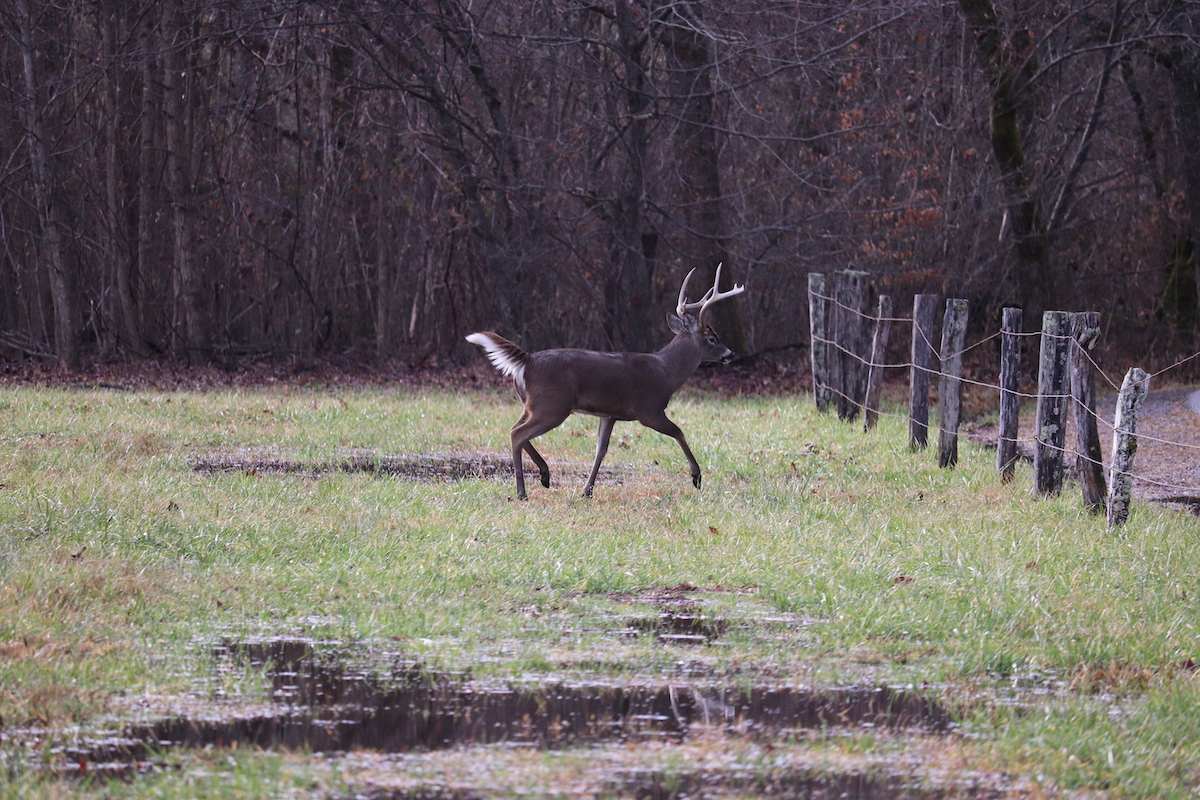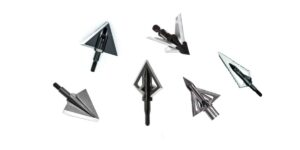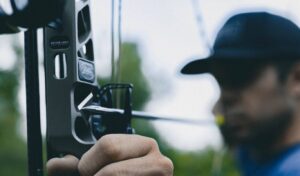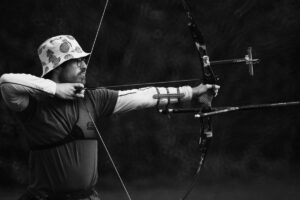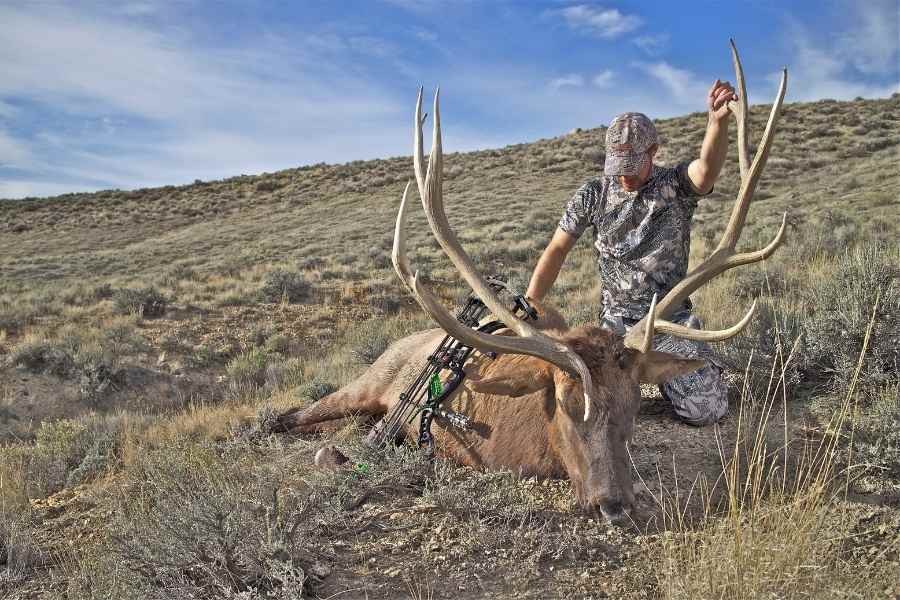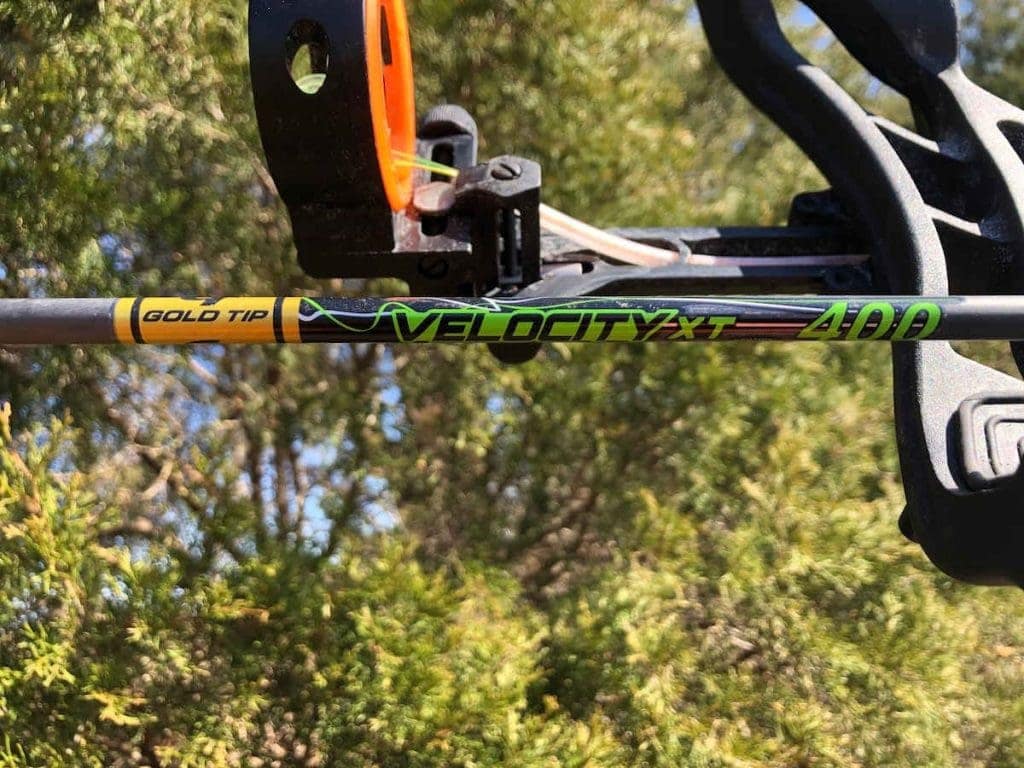Deer and farm country go hand-in-hand, as much as the whitetail has become a staple of America’s heartland. Due to their inhabitants of such rich agricultural areas, deer often encounter several interesting farm-related obstacles.
This tends to pose curiosity among hunters, who often question how deer will react to such obstacles.
One obstacle often encountered by deer inhabiting farm country is the electric fence. As most are well aware, electric fences are used to keep cattle and other livestock within their intended ranges.
However, this leaves many to wonder whether or not the placement of an electric fence can impact natural deer movement.
Contents (Jump to Topic)
ToggleWill An Electric Fence Keep Deer Out?
No. An electric fence will not keep deer out. Not unless you install a 10-15 foot tall fence. And this is, in most cases, not an option! So better forget about relying solely on an electric fence to deter deer.
How High Can Deer Jump?
The first point of consideration when determining whether or not a deer will jump an electric fence involves figuring out how high the average deer is capable of jumping.
As it turns out, deer are relatively successful high jumpers, with most healthy whitetails being capable of easily clearing an 8-foot fence at a run.
Even from a standstill, whitetail deer have been known to clear fences measuring more than 8 feet tall. In some extreme cases, deer have been recorded leaping fences up to 10 feet in height.
For this reason, many orchards or production vegetable growers employ the use of fences as tall as 15-foot.
What About The Shock?
As described above, jumping an average electric fence measuring approximately 4 feet in height is no challenge for the average deer.
However, does the electric discharge supplied by a fence of this type deter deer from attempting such a feat? In short, the simple answer to this quandary is an overwhelming “No”.
read.. why do deer stomp their feet
An electric fence operates on the theory that electricity will always seek the most direct path to the ground.
As such, any person or animal that touches a strand of an electric fence while standing on the ground will be shocked.
However, deer remain largely unaffected by this discharge of energy due to the fact that they are not in contact with the ground when in the midst of a leap.
Without a deer’s body coming into contact with an energized strand of the fence, at the same time that its hooves are in contact with the soil below, the fence’s electrical energy cannot discharge to the ground.
As a result, deer receive no shock whatsoever, giving them little reason to avoid such an obstacle.
In most cases, a deer’s movements will be no more inhibited by the presence of an electric livestock fence than any other type of fence.
The exception to this rule comes when a deer makes contact with an electric fence while still in contact with the ground. However, even then, a deer is unlikely to connect the presence of such a fence with the momentary jolt it felt.
This is, of course, assuming that repeated contact is not made, thereby reinforcing this notion.
And The Verdict Is…
Deer can and do jump electrical fences regularly.
After all, electric fences are now prominent enough that farm country deer could hardly travel if they were to shy away from every energized fence they encountered.
read.. will deer travel in the rain
This is simply not the case, as deer are regularly observed jumping electric fences of almost any imaginable construction.
The only true way to prevent a deer from crossing a particular boundary is to install a fence of tall enough stature that it is physically impossible to leap.
As stated above, this would necessitate the use of 10-15 foot tall fence panels along the entire perimeter of the area that is to be barricaded off.
In most cases, this is not feasible.
What Does This Mean For Hunters?
If you are hunting an area or farm that utilizes electric fencing, there is little cause for concern.
In almost every case, deer will move freely about such areas without being restricted in their travels by specialty fences.
This leaves a hunter to forge ahead as they otherwise would, relying upon meaningful signs and ample scouting to point them in the right direction.
